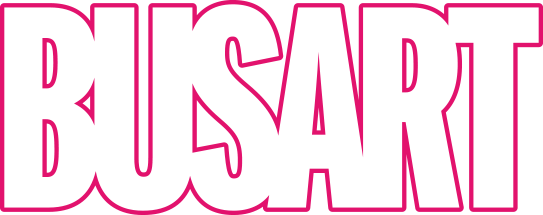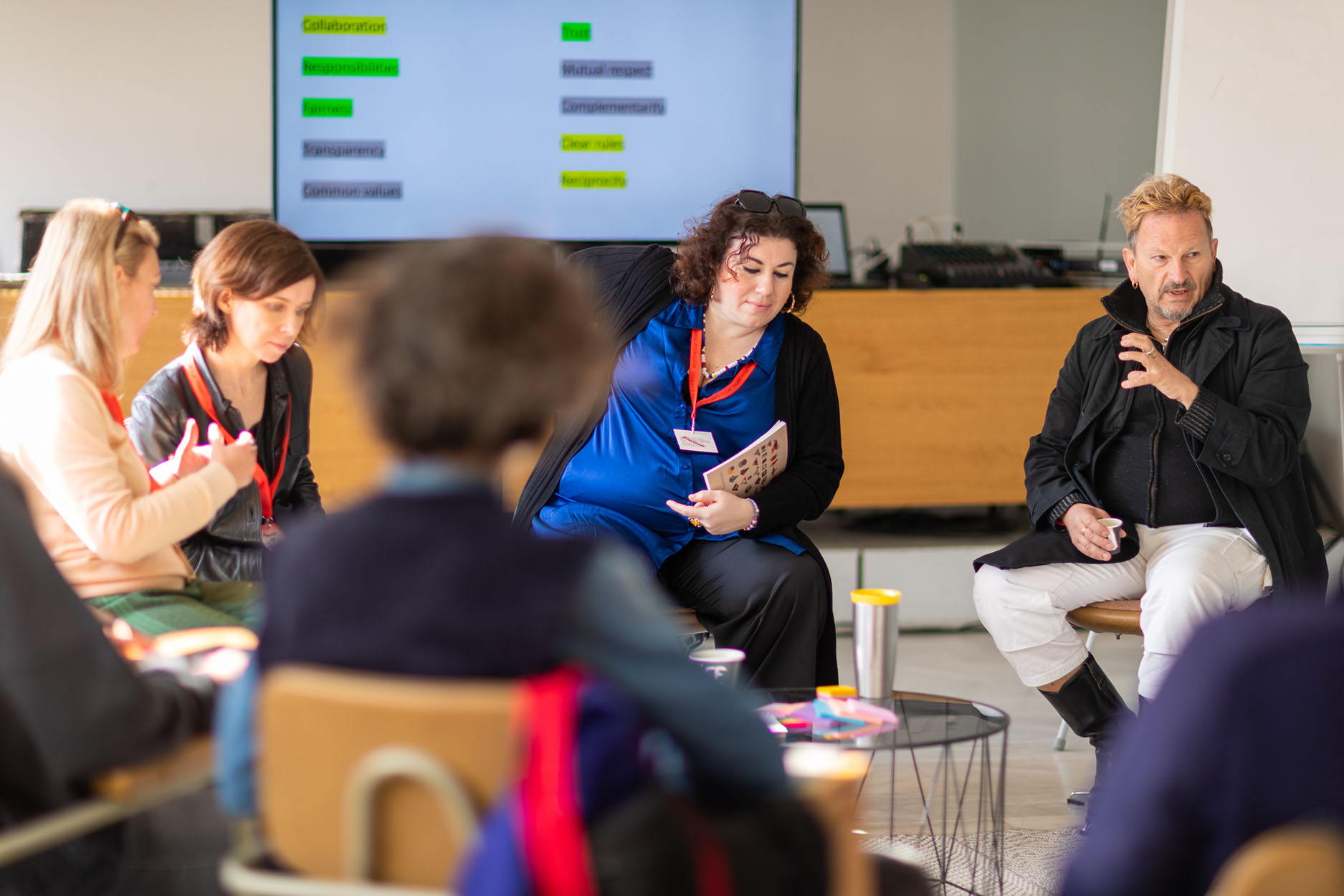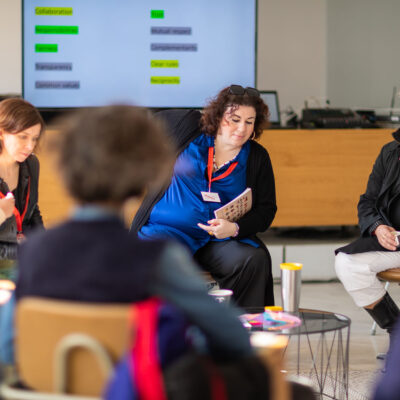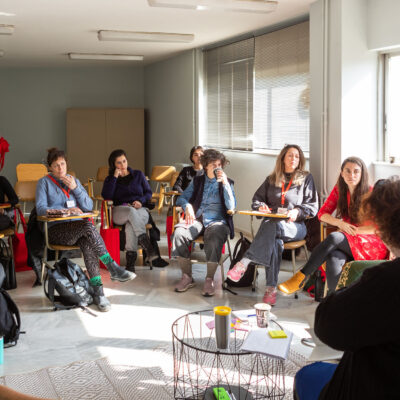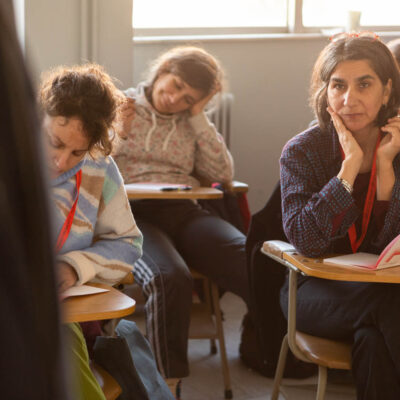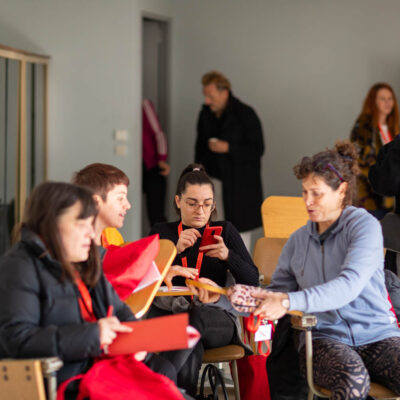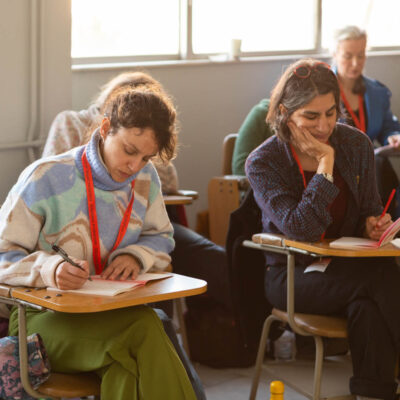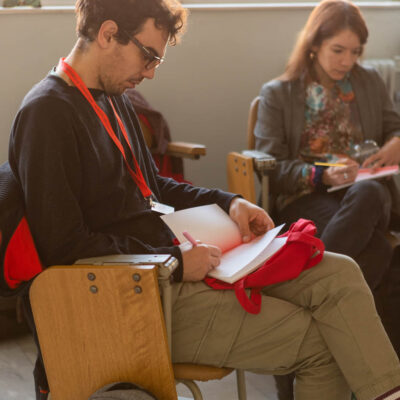Aiming to strengthen artists and professionals of contemporary performing arts in the fields of international collaborations on the one hand and dramaturgy on the other, the 2023 European Capital of Culture Elefsis in collaboration with Busart and the International Network for Cultural Mobility On the Move designed the “Capital Connections” programme. Through Capital Connections, 15 Greek performing arts organisations and/or individual artists had the opportunity to receive personalised advice and mentoring, one year durated, aiming to initiate or boost their presence in the global scene.
European and International scene
The extroversion of Greek artistic production has for decades, if not since the foundation of the Greek state, been a constant aspiration of both official cultural policies and the artists and cultural professionals themselves. Extroversion, however, presupposes an essential knowledge of the ‘outside’ and constant contact with it. But what is this ‘outside’? What is what we call the ‘European’ or ‘international’ scene?
Usually when we refer to the ‘European scene’ we mean the activity of a few institutions and artists, a few festivals such as the Avignon or Edinburgh festivals and a few famous directors and choreographers. Thus, we often end up, perhaps unconsciously, equating extroversion with celebrity and presence abroad with prestige.
In reality, the European scene is made up of several hundred thousand artists and institutions living and creating in hundreds of cities from Iceland to Estonia, from Portugal to Bulgaria, from Cyprus to Sweden and so on. Most of them face similar challenges to us in their quest to experience what lies outside the geographical boundaries of their city and country.
In any case, it is rather impossible to get to know and connect with the entire European scene. Also, in most cases, being connected to the European scene does not imply prestige and celebrity. Rather, it implies the challenge of what it means to address our work in Stockholm, Riga, Warsaw, Porto and so on. And probably, in most cases, it leads to getting to know colleagues with whom we share common concerns, similar aspirations and a related aesthetic. Usually this contact and exchange also leads to collaborations, whether it be post-callings, participation in European projects or other types of partnerships.
Extroversion, then, and operating outside national borders is mainly a process. That is why, contrary to what often happens, the debate on extroversion does not start from artistic excellence – in fact, we are rejecting ex-nationalist notions and attitudes that categorise artistic creation in terms of qualitative or non-qualitative results – but from desire and curiosity.
The one-year project
Through an open call, 15 institutions or individual artists and professionals from the whole spectrum of contemporary performing arts (theatre, dance, puppetry, contemporary circus, public performances, participatory art performances and so on) were selected to follow an individualized process of counselling and mentoring by Kelly Diapouli and experts of the International Network for Cultural Mobility On the Move.
The process started with an introductory two-day seminar held in Elefsina on 25 and 26 February 2023 and built up with online face-to-face sessions with each participant once a month for about ten months.
Where priority was given?
Priority will be given to institutions, artists and professionals at the beginning of their attempt to outreach their activities to the abroad, to independent bodies and operators active in the Region. The project addresses active artists and professionals and not to students and amateurs. Its main goal is to empower artists and institutions that have embodied -or are willing at- international collaborations on a permanent basis and not only for a single project.
